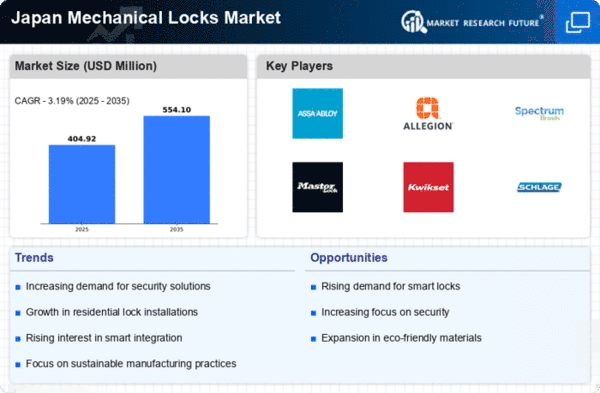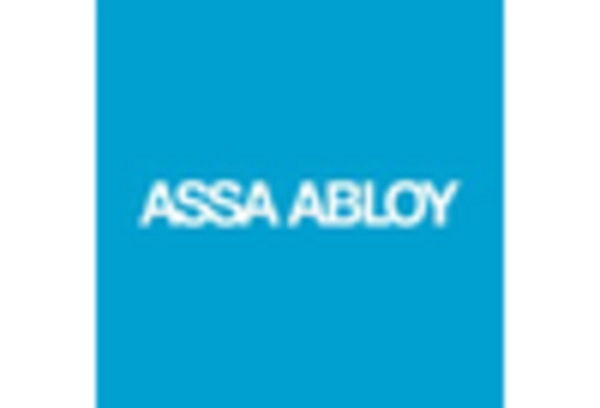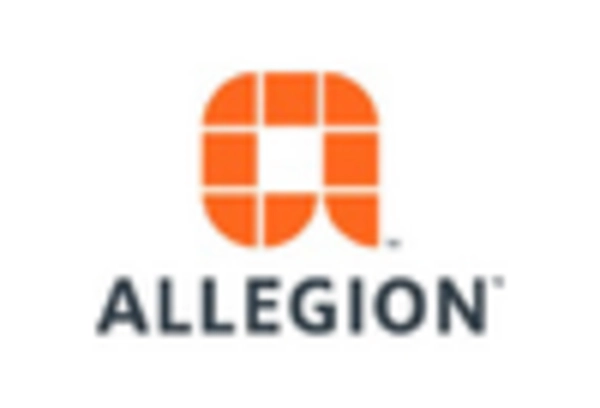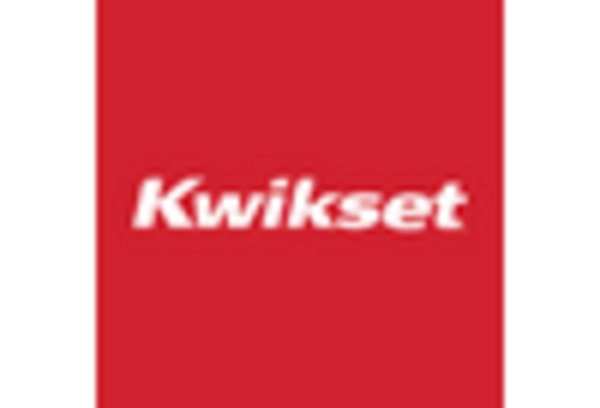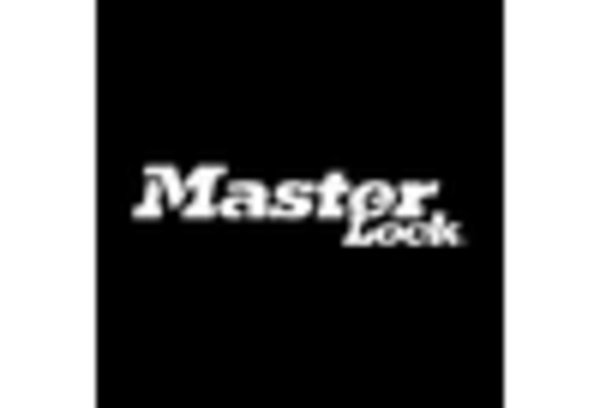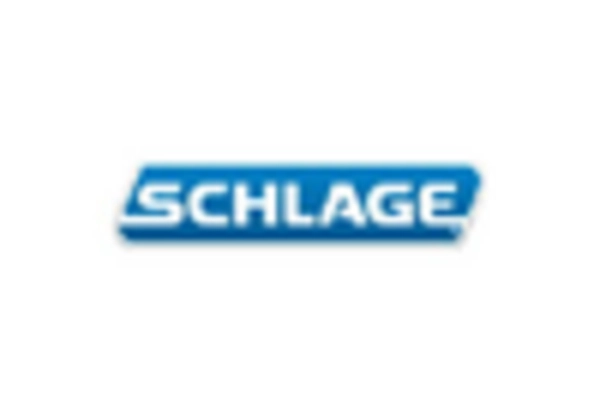Rising Security Concerns
The increasing concerns regarding security in residential and commercial properties are driving the mechanical locks market. As crime rates fluctuate, individuals and businesses are prioritizing robust security measures. In Japan, the demand for high-quality mechanical locks has surged, with the market projected to grow at a CAGR of 5.2% from 2025 to 2030. This growth is attributed to the need for reliable locking systems that can withstand unauthorized access. The mechanical locks market is responding by innovating products that offer enhanced security features, such as pick-resistant designs and durable materials. Furthermore, the emphasis on physical security solutions is likely to continue, as consumers seek peace of mind in their environments.
Increased Focus on Home Automation
The rise of home automation systems is impacting the mechanical locks market in Japan. As consumers embrace smart home technologies, there is a growing interest in integrating mechanical locks with automated systems. This trend is leading to the development of hybrid locking solutions that combine traditional mechanical features with modern electronic capabilities. The mechanical locks market is responding by creating products that not only provide security but also enhance convenience and connectivity. This integration of technology into traditional locking systems may attract a broader customer base, potentially expanding market opportunities in the coming years.
Consumer Preference for Customization
The growing consumer preference for customized security solutions is influencing the mechanical locks market. In Japan, customers are increasingly seeking locks that cater to their specific security needs and aesthetic preferences. This trend is prompting manufacturers in the mechanical locks market to offer a wider range of customizable options, including various finishes, sizes, and functionalities. As a result, the market is witnessing a shift towards personalized locking solutions that enhance user satisfaction. This inclination towards customization may drive innovation and diversification within the industry, as companies strive to meet the unique demands of their clientele.
Technological Advancements in Manufacturing
Advancements in manufacturing technologies are reshaping the mechanical locks market. Innovations such as precision engineering and automated production processes are enhancing the quality and efficiency of lock production. In Japan, manufacturers are increasingly adopting these technologies to produce locks that meet stringent quality standards while reducing costs. The mechanical locks market is likely to benefit from these advancements, as they enable the creation of more complex locking mechanisms that offer improved security features. This trend suggests a competitive edge for companies that invest in modern manufacturing techniques, potentially leading to increased market share.
Urbanization and Infrastructure Development
Japan's ongoing urbanization and infrastructure development are significantly impacting the mechanical locks market. As cities expand and new buildings emerge, the need for effective locking solutions becomes paramount. The construction sector in Japan is expected to grow by approximately 3.5% annually, leading to increased demand for mechanical locks in both residential and commercial applications. The mechanical locks market is adapting to this trend by providing a variety of locking mechanisms suitable for different architectural styles and security needs. This trend indicates a potential for innovation in design and functionality, as manufacturers strive to meet the evolving demands of urban environments.


